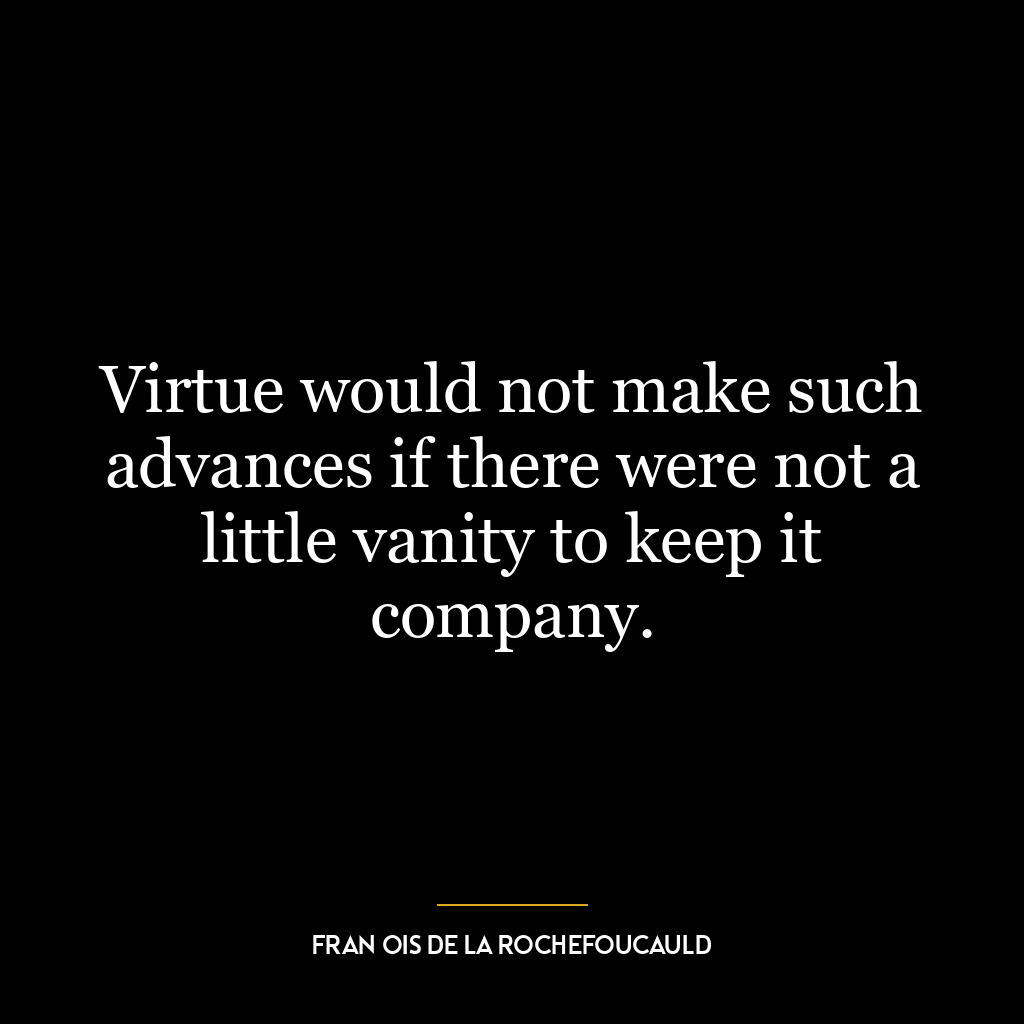Virtue would not make such advances if there were not a little vanity to keep it company.
This quote suggests that vanity, often seen as a negative trait, can actually contribute to the development of virtue, which is generally regarded as morally good. The idea is that our desire to be seen as virtuous by others, a form of vanity, can motivate us to act virtuously. In other words, our concern for our image and reputation can push us to improve our character and behavior.
The concept of vanity here is not just about physical appearance, but more about our image in the eyes of others. It is about the desire to be admired and respected, which can be a powerful motivator for self-improvement. The vanity that La Rochefoucauld refers to can be seen as a form of self-love, which is not necessarily a bad thing. It can be a driver for personal growth, pushing us to become better versions of ourselves.
In today’s world, this idea is still very relevant. Social media, for example, is a platform where vanity is often on display. People post about their achievements, their good deeds, even their fitness routines, all in an effort to present a certain image to their followers. This can be seen as a form of vanity, but it can also motivate people to actually do these things in real life, not just online. So, in this way, vanity can lead to virtuous behavior.
In terms of personal development, the desire to be seen as successful, intelligent, or kind can push us to work harder, learn more, and be kinder. If we want others to see us as virtuous, we have to actually be virtuous. So, vanity can be a catalyst for personal growth, pushing us to develop virtues like patience, humility, and generosity.
However, it’s important to note that while vanity can motivate virtuous behavior, it should not be the only reason for being virtuous. Virtue should ideally come from a genuine desire to be a good person, not just to appear as one.















